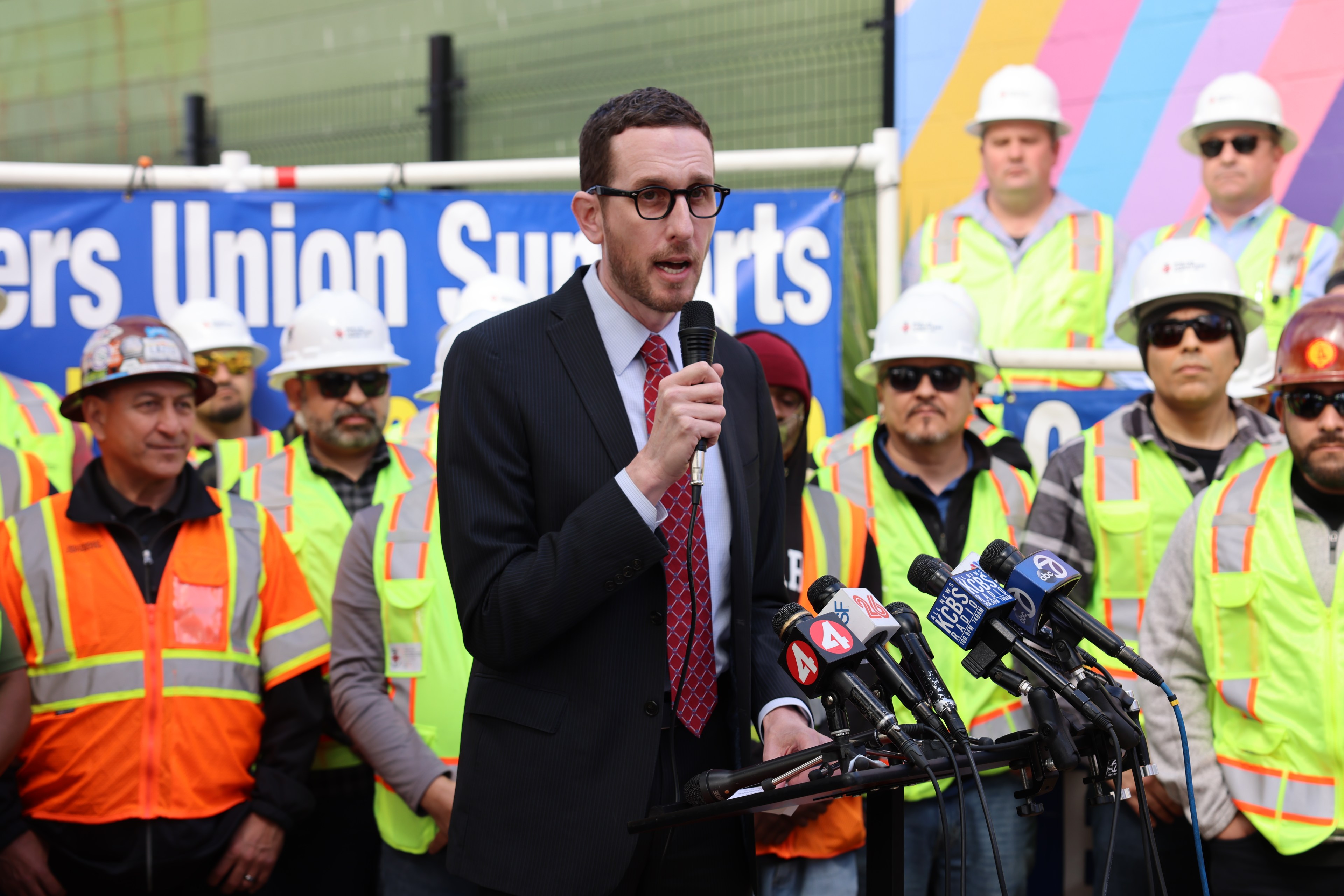A new state bill is aiming to replace the thousands of affordable housing units lost in the Western Addition and Fillmore District during San Francisco’s “urban renewal” period decades ago, announced state Sen. Scott Wiener on Thursday.
If passed, Wiener’s State Bill 593 would aim to rebuild over 5,800 low- and middle-income housing units using a specific property tax trust fund that does not compromise other tax revenue used for the city’s general fund.
“Decades after the injustice of redevelopment, we still have a 5,800-home hole in San Francisco’s housing stock,” Wiener said. “The loss of these homes devastated the Black community of San Francisco and contributed to the crisis of affordable housing costs that continues to make the City unlivable for so many. SB 593 sets San Francisco on a path to right this wrong and meet its affordable housing goals.”
Urban planning policies from the ’50s to the ’70s attempted to aggressively improve and redevelop parts of the city with higher rates of crime and poverty, like the Fillmore and SoMa, in a process labeled “urban renewal.”
Backed with federal funds under the Housing Act of 1949, which helped demolish so-called “slums” throughout the country, the former San Francisco Redevelopment Agency was able to streamline the process of acquiring property, tearing it down and building new homes in predominantly Black and Brown neighborhoods.
With little room for discussion, the process displaced thousands of people from their homes without compensation or an alternate place to stay, mass-relocated communities of color and eroded the rich cultural history of these neighborhoods.
An estimated 20,000 residents and 800 businesses in the Fillmore neighborhood were impacted, and the policies partially led to the decline of the Black population in the city from 13% in the ’70s to 5.3% today, said Mattie Scott, president of Freedom West Homes Corp, a housing nonprofit that co-sponsored the bill.
“This legislation will right the wrongs of the past by funding the preservation and rebuilding of affordable housing while also sparking the economic revitalization needed to create an equitable and sustainable future for our current and future residents of color,” Scott said.
In 1979, the state amended a law to require that the city replace the over 6,700 affordable housing units lost during the reconstruction period. City redevelopers began constructing over 800 units in 2003, though the efforts halted once the agency dissolved in 2012.
Today, the city’s successor agency to the redevelopment agency has voiced its commitment to building the remaining units, and cited a need to dedicate property tax revenues to fund construction.
The bill would utilize tax increment financing to pay for half of the construction costs, and the remaining expenses would be covered with public and private funds.
The bill is also co-sponsored by the City and County of San Francisco. Mayor London Breed said the bill would help San Francisco reverse the harms of mass displacement and fund new affordable homes in a time where the city is aiming to achieve ambitious housing quotas.
“It is long overdue for San Francisco to make amends for the destruction of these neighborhoods and for contributing to our housing crisis,” Breed said. “As we work to implement the promise of housing for all in our city, this legislation is a creative solution that gives San Francisco the ability to right past wrongs and provide much needed housing for our vulnerable families.”
Copyright © 2023 Bay City News, Inc.
